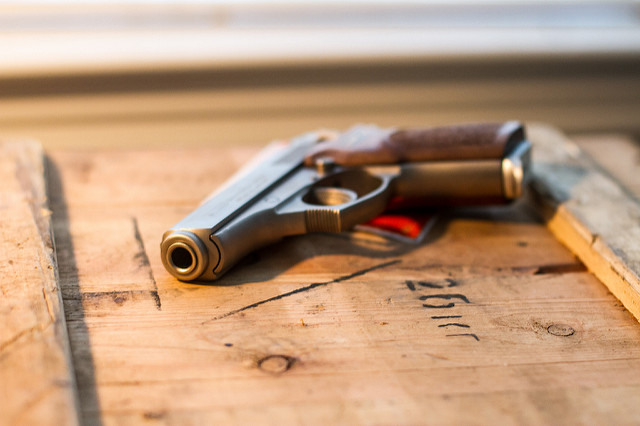Court of Public Opinion

In discussing the Ferguson unrest, I feel as if I have to disclaim straight away that I am in no way racist. This, as I see it, is a major problem. The fact is, no one should have to make that clarification: the assumption that if you don’t agree with the minority party it must be racially motivated is ridiculous, even insulting. This, however, is not simply about what people will assume about me; it’s one of the major hurdles to true racial equality in the United States. Cases like this have become so wrapped up in interracial tension and personal politics, it becomes impossible to voice an opinion without it becoming a personal statement about race. So let me say once more: My opinions on the matter have nothing to do with race. I don’t care if the kid who was shot was white, black, or anything else. This post will not be about whether or not I think Wilson’s shooting was justified, and it will not be about whether or not I think the killing was racially motivated. This is a post about the justice system of the United States, the protesters of Ferguson, MO, and about the seemingly difficult (but ultimately pre-determined) decision the jury had to make.
The Jury
The jury had a vast amount of information to consider during the three months during which they heard the case. Conflicting accounts abounded, and the only things that are really clear are: There was a physical altercation, and several shots were fired before the fatal shot. Now, I’m not a lawyer, but this basically means the case comes down to a few critical moments: The final round of shots. If Brown was indeed running towards Wilson at the time, it was a justifiable homicide. If he had stopped and surrendered, then it was not justified (I make no comments on actual charges that would have been brought, or Wilson’s motivation for the shooting).
In the end, however, no matter how the jury felt about the case, no matter if Wilson had a known racist streak (there’s no evidence that I’ve heard to suggest this), no matter how anyone feels about what happened, the simple fact is this: There was not enough evidence to indict Wilson. The core principle of the United States justice system is presumption of innocence. Ei incumbit probatio qui dicit, non qui negat. Innocent until proven guilty. While this is not an explicitly guaranteed freedom in the United States, it arises implicitly in the constitution and is a standard practice in US courts of law. The prosecution failed to bring any real evidence that Brown was not attacking Wilson at the time, therefore Wilson can not be found guilty (note that he was not pronounced innocent either, there’s simply not enough evidence to decide). The jury had a difficult decision to make, but it was also pre-determined; they had to put their personal feelings aside and consider the facts (as juries must), and the facts led them to the correct conclusion. While it is to be hoped the justice system does not let criminals go free, it is better that a hundred criminals go free than one innocent man suffer the consequences of actions which were not his own, or were justified under the law.
The Protesters
Another disclaimer: When I discuss the protesters, I am only going to consider the actual peaceful protesters. People looting shops, burning squad cars, and generally causing mayhem are creating the separate problem of distracting people from the issues which the true protesters are trying to have discussed, and hopefully will be arrested and dealt with according to the measure of their offences.
Regardless of whether or not this particular killing was racially motivated, racial inequality and the disparity of force employed by the police between peoples of different color is something that should be discussed, and remedied if possible. The (peaceful) protests before the trial were an execution of the protesters right to assemble, and right to freedom of speech, and should be applauded. People have a right to express their views, and doing so should be encouraged. After the trial, however, while they still have the right to protest the jury’s decision, it does more harm to their cause than good. This was not the decision of the police, a judge, or a ruler: This was a decision made by a jury of the protesters peers. Some of the jurors may even have been in the street protesting themselves if they had not been summoned to fulfil their duty. By protesting a jury decision, even peacefully, you encourage future juries to decide, not based on the rule of law and informed decision making, but based on the court of public opinion. If you disagree with the jury, that’s fine, but make sure you understand that, unless new evidence comes to light, justice has been served in the best way we have devised. President Obama stated: “We need to accept that this decision was the grand jury’s to make,” and I suspect that most of the protesters, if they stop and think about it, probably couldn’t agree more. Don’t protest the jury’s decision, protest the inequality that is still sadly a part of the system, and even better, do so when there’s a case in which the evidence suggests that inequality or racism actually played a role.
I follow and vote done
You follow and vote me